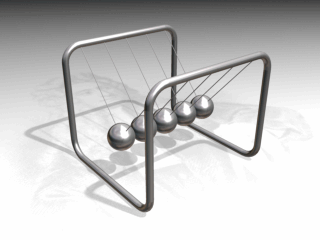If you had to build a tower out of small wooden building blocks, would you rather chose to do it alone with your eyes open or with your eyes blindfolded and another person guiding you?
The session started with a game to build a tower out of cubes for which people were asked to bid money just to try, the purpose, 'One should be ready to take risks as a manager'. The bids started at 100, the final being a bid for Rs. 500 and the highest bidder allowed to approach the stage to start the activity.
Have a look at what happened next yourself:
So the first attempt ended with the tower finally reaching a height of 22 blocks!
A second bidding took place to decide who would perform the task blind-folded. The bid this time was a lowly 100 with no one expecting much success. Even the estimates to the size of the tower were paltry. But a team was formed- a worker, who was blindfolded and asked to use only his left hand to build the tower block-by-block while following instructions; a manager, who was to guide the worker without helping out himself; and a CEO, who set the target. This is what followed:
In the video you can see the tower reach a height of 21 blocks- one less than the former. The team did not stop there and went on to build a tower 25 blocks high.
Open Eyed Person
In Modern Management, it is seen that the productivity is high, and at the same time, the skill of individual and also of a group goes on decreasing. But the dissatisfaction in workers increases, as they are unaware of decisions. The division of work is clear. The Top management does strategic management which includes decision making, planning etc. Middle management guides worker and supervises. The worker has clearly defined tasks and activities which he performs.
So, this is the theory.. But if you think about it, all of the major corporations today are based on this approach. Modern Management is what allows all the highly profitable multimillion corporates to exist, the base for all the conglomerates across all sectors!
The session started with a game to build a tower out of cubes for which people were asked to bid money just to try, the purpose, 'One should be ready to take risks as a manager'. The bids started at 100, the final being a bid for Rs. 500 and the highest bidder allowed to approach the stage to start the activity.
Have a look at what happened next yourself:
So the first attempt ended with the tower finally reaching a height of 22 blocks!
A second bidding took place to decide who would perform the task blind-folded. The bid this time was a lowly 100 with no one expecting much success. Even the estimates to the size of the tower were paltry. But a team was formed- a worker, who was blindfolded and asked to use only his left hand to build the tower block-by-block while following instructions; a manager, who was to guide the worker without helping out himself; and a CEO, who set the target. This is what followed:
In the video you can see the tower reach a height of 21 blocks- one less than the former. The team did not stop there and went on to build a tower 25 blocks high.
This activity served to contrast the workings of Modern Management and Traditional Craftsmanship.
We saw two people doing the same job-
1. Open Eyed Person(OEP)
2. Blindfolded Person(BFP)
- He has decision making ability.
- He assumes all responsibilities.
- He has to pay attention to each and every task.
Blindfolded Person
- He doesn't have any decision making ability, and follows the decisions made by management.
- Responsibilities handled are very few.
- As he cannot see the end results, he does not have any fear.
In Modern Management, it is seen that the productivity is high, and at the same time, the skill of individual and also of a group goes on decreasing. But the dissatisfaction in workers increases, as they are unaware of decisions. The division of work is clear. The Top management does strategic management which includes decision making, planning etc. Middle management guides worker and supervises. The worker has clearly defined tasks and activities which he performs.
So, this is the theory.. But if you think about it, all of the major corporations today are based on this approach. Modern Management is what allows all the highly profitable multimillion corporates to exist, the base for all the conglomerates across all sectors!



